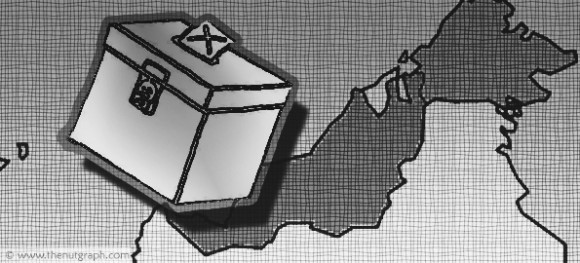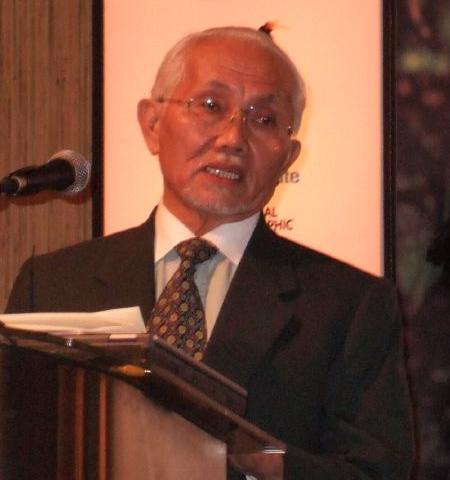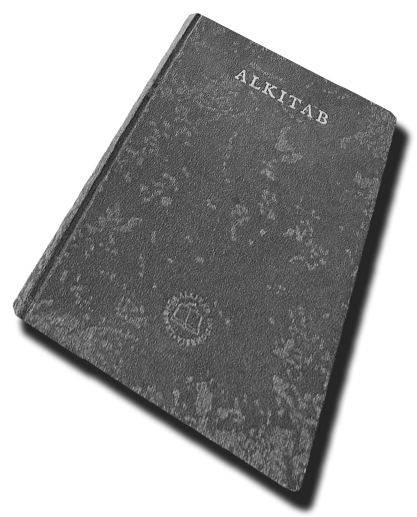
THE impending 16 Apr 2011 Sarawak elections have been dubbed by some media as the “hottest ever” polls in the state. The state elections will be the biggest test that the Barisan Nasional (BN) and the Pakatan Rakyat (PR) have had to face since the 2008 general election.
The BN will be looking for signs that Sarawak support remains strong, with speculations that it will call for a general election if it performs well. The PR, on the other hand, will be looking to repeat their 2008 upset, when they denied the BN a two-thirds majority in Parliament. They will be looking to do the same in the Sarawak assembly.
In an email interview with The Nut Graph, Universiti Malaysia Sarawak (Unimas) Associate Professor Dr Andrew Aeria talks about the key issues facing Sarawakians in these elections. Aeria is a member of Unimas’s Faculty of Social Sciences, focusing on political science and development studies.

TNG: Many promises will be made to the people by political parties during the state elections. What key issues will Sarawakians want to see seriously tackled by the next state government?*
There are numerous outstanding issues which the next government – be it the BN or PR – has to tackle. Foremost is to address issues of poverty and inequality in the state. Official poverty is about 5%, but some informed academics suggest that it is much higher due to statistical fudging.
Inequality is also a serious problem, but unfortunately, the federal government is very reticent about publishing the Gini coefficient for Sarawak, which measures wealth inequality.
Then there is rural infrastructure development, which is seriously lacking, and the provision of health and educational services. High unemployment and rural-urban migration, arising from the present economic structure where mega-projects are prioritised, is also a major issue.
Enhancing the efficiency and the professionalism of the civil service is also key. The bureaucracy is bloated and inefficient. There is presently too much wastage, with unaccounted-for financial leakages. There is little equality of opportunity for merit-based businesses seeking government contracts.
Finally, there is the need to deal comprehensively and justly with the issue of property [and] native customary land rights.
Political parties need to address the issue of renewal and a commitment to internationally recognised standards of political behavior. At the moment, there is a serious lack of good professional talent within the ranks of all political parties.
Chief Minister Tan Sri Abdul Taib Mahmud and his many family businesses have been receiving a lot of attention in the press lately. How will the “chief minister” factor influence campaigning and the people’s sentiment during the state election?

Chief Minister (CM) Abdul Taib Mahmud has been in office for 30 years. He says he wants to step down but cannot do so yet. He says he wants to make sure the next person can do the job so that the people will benefit. Hence, he is duty-bound to continue in office until such a time when a competent successor is ready; one who will continue with his “politics of development” struggle.
While some in Sarawak believe this, others do not, since they cannot fathom why ministers like (Datuk Seri) Abang Johari Abang Openg cannot take over. Abang Johari is the deputy president of Parti Pesaka Bumiputera Bersatu (PBB), and is recognised by many as being relatively competent compared with his cabinet colleagues.
There is also the issue of Taib’s personal and family wealth, which Taib asserts is a product of hard work and corporate talent. Others, however, allege that it’s due to systematic plunder of state resources, corruption and nepotism. Thus, for those who see things from Taib’s view, his continuation in office is not only not an issue but a necessity to ensure political stability via a smooth transition.
But for his detractors, it is time he passed from the political scene. Nothing else will satisfy them. So, either way you see it, yes, the CM is an issue in this election.
The BN federal government has been particularly careful with how they deal with the Al-Kitab controversy over the last few weeks, showing more willingness to compromise. Do you think this is connected to the Sarawak elections? And how does this reflect the different ethnic and religious composition of Sarawak?
I think the federal government has a serious problem at the core of its being, namely, Umno’s ideological outlook, which has become much less inclusive compared with during the early years of nationhood. Umno leaders have given much ground to the demands of the likes of Perkasa and their ilk and respond accordingly. As such, Umno finds it difficult to be able to imagine a genuinely multiethnic, multireligious country in which all citizens are equal but different.
Umno today has become largely consumed by its own supremacist rhetoric, which, at its root, is fueled by their generated fear of the other; of Malay [Malaysians] supposedly being “under siege”. Consequently, it can only perceive a country within a “Ketuanan Melayu” mould. Umno only feels “secure” within this context, in which all other communities are subservient to its ideology.

Unfortunately, this situation is complicated by a constitutional overlap, whereby all Malay [Malaysians] are Muslims and where Islam is often deployed for political purposes in election campaigns. It is genuinely difficult for Umno, Perkasa supremacists and even some PAS right-wingers to fathom why Christians would want a Malay Al-Kitab without harbouring suspicions that Christians are out to convert Muslims or subvert the Muslim faith.
This thinking also suggests another prejudice, namely a deep-rooted West Malaysian centricism that dominates the dominant social discourse and collective thinking in the country. Thus, within this skewed West Malaysian discourse, Umno often forgets that a majority of native bumiputera in East Malaysia are not necessarily Muslim.
Frankly, I think if there were no elections in Sarawak today, the Umno-dominated federal government would not have been as focused in addressing the concerns of Christians over the Al-Kitab issue and their constitutional and human rights to freely practise their faith. I guess elections in a state with about 43% Christians have a way of sharply focusing Umno’s thinking into being more inclusive. Yet, even now, Umno is bungling it.
One also has to question why it has to take a keenly contested election to focus Umno’s mind. Does this mean that once the election is over – and if the BN wins big – that Umno will re-impose its less-than-satisfactory worldview upon Christians vis-à-vis the Al-Kitab and freedom of religion issues?
It has been said that some in Sarawak are still suspicious of opposition parties such as the DAP and PKR, which have their roots in peninsular Malaysia. What are your views on this?
I think if the DAP and PKR were members of the BN coalition, there would be no suspicions of them. In other words, it is the BN and their leaders that have deployed the [traditional] media to demonise these two parties as “dastardly and destructive” outsider parties from West Malaysia.
Incidentally, the BN also has West Malaysian origins, since the coalition was formed in Kuala Lumpur under Tun Abdul Razak.
What’s wrong with West Malaysian parties if they help strengthen democracy by promoting human rights, justice, accountability, transparency and inclusiveness? What is wrong with “West Malaysian” parties if they raise the quality of human welfare in the state, along with the quality of the state’s hitherto impoverished political and economic discourse? Is it forbidden to discuss and address these issues and put internationally recognised political principles at the centre of politics merely because a party is supposedly “West Malaysian”? Should parties from “West Malaysia” be ignored and shunned merely for doing this?
Frankly, I think such “regionalistic” thinking is little better than racism [but nevertheless] belongs in the dark ages. It is time we moved beyond such shallow and even primordial scaremongering and engage at the level of policy and ideological substance. We need to recognise that it is the intellectual dynamism and ethical activism of parties and their members, and not their origins, that will make a difference to the lives of Sabahans and Sarawakians. ![]()


Ma Lan Hua says
Your commentary is quite comprehensive and independent. It is hard to see a really fair and just report nowadays. Good job!
Crossing The Borderlines of the Mind says
It is high time for Sarawakians, both Christians and non-Christians, to wake up to their responsibilities as citizens of Malaysia to stand up for the rights of all citizens to practise their faiths freely without obtructions and unfairness of treatment.
However, this regionalistic mentality of East-West Malaysia is still prevalent and the coming election will show how far have Sarawakians progressed to think and act beyond regionalistic boundaries.
The Alkitab and Allah issue is the red hot challenge that is being thrown into the midst of peaceful Sarawak. Here they will have to make a stand for the future of the country and for their own well-being, both economic and spiritual.
Kate Green, Zombie Shooter says
I think most people in rural Sarawak are unaware or apathetic about the Alkitab issue. The only difference where the issue might have made a difference in a rural area is Ba’Kelalan, which has a community of very pious Christian indigenous people due to the incident of miraculous visions in the area once.
Although Dr Aeria is certainly entitled to his opinions about regionalistic thinking, as a Sarawakian living in the Klang Valley, I do think a certain degree of that regionalistic is important. At the very least, it is a key factor in making sure that political awareness that is developed is from the grassroots rather than imposed.
When I was living in Kuala Lumpur during the Bersih rally, there was an atmosphere of empowerment that came from the masses learning about their civil rights and telling authorities that enough was enough. This is different from what is going on with Sarawak now (at least to this Sarawakian living in the Klang Valley) – the push to vote opposition strikes me as being very ‘top down’, it is West Malaysians with an interest in the number of seats Sarawak has trying to persuade Sarawakians to join their camp.
If Pakatan wins Sarawak at any point now, because they are ‘persuaded by outsiders’, then there is no real political empowerment to the people. To me, it seems as if the people have merely been persuaded to vote between two authorities, one already an oppressor and another a potential oppressor.
Ekompute says
The government is the mirror of the people. If the people themselves are corrupted, they should not complain about a corrupt government. It’s no point complaining, if one does not exercise his [or her] vote. Read why all eligible Malaysians must vote at http://thinking-aloud.jbdirectory.com/2011/04/why-malaysians-must-vote-in-general-elections/